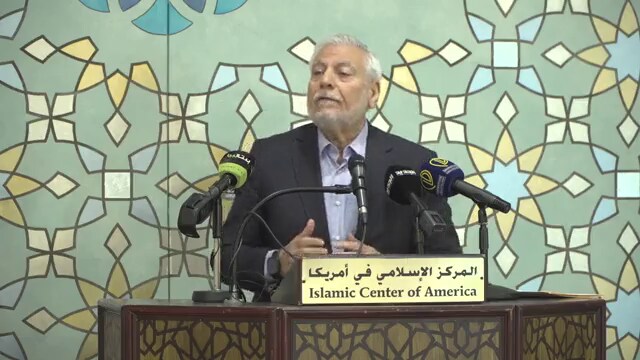
Liberal Kuwaiti activist Nasser Dashti said in a March 21, 2019 interview on Al-Rawdatain TV (Kuwait) that reform cannot be political and that it must be cultural. He said reform begins with education, media, the spreading of secular culture, and confrontation of those who oppose secularism through debate. Dashti added that secular societies openly own up to their mistakes and develop through experience and self-criticism. He said: "The difference between us and them is that we hide [our failures] from the media." Dashti criticized religion for encouraging people against art, for dividing the family, for destroying countries, and for turning people against scientific research by forcing them to accept the "cartoon-like stories" found in religious texts.
Following are excerpts:
Nasser Dashti: In my view, reform cannot be political. It must be cultural. It must begin at home and with the education. It must begin with the media, with the spreading of secular culture, and with an attempt to debate those who oppose secularism. At least in my view, this must be done in a confrontational manner.
[…]
Interviewer: In France, there are currently nine million poor men and women, seven million unemployed men and women, and 400,000 homeless men and women living in the streets of France.
[…]
Is this the secularism you want?
Nasser Dashti: What's beautiful about secularism is that it is modest, and that it is clear to everybody. Secularism admits that it is relative and it owns up to its mistakes, because it is a dynamic process that develops through experience and self-criticism. If you examine the history of secularism… You have France before Napoleon and you have the France of today. You have America of the past, and the America of today. They are different, because secularism is based on self-criticism. When France experiences such things, they are discussed in the media and French citizens tell about it to the world in an attempt to fix this, or at least acknowledge that there is a catastrophe. You and I are Kuwaitis, sitting in Kuwait, and discussing what is happening in France. But why aren't we talking about the [stateless] Bidoon in Kuwait? Why aren't we talking about the displaced people in Third World countries? No matter how much you talk to me about the poverty and displacement in France and in America, it cannot be compared to the percentage in the Middle East or in Third World countries. There is no comparison. The difference between us and them is that we hide these things from the media.
[…]
We have it all, too. These catastrophes are everywhere. Nobody is saying that secularism is perfect. What's beautiful about secularism is that it acknowledges these issues and tries to fix them, and it does so out in the open. In addition, we must not forget that France received many refugees from African countries and even Arabs, so mistakes are bound to happen. I am not making excuses. On the contrary, I even criticize if solutions are not found. We all saw the protests and sit-ins in France lately… When criticism is in order, we criticize, but it doesn't mean that we are better. We are not – we are worse.
[…]
Religion does not talk with anybody. There are texts that encourage the followers to adopt a discourse that obstructs scientific research and art, that divides the family, that destroys the country and tears national unity apart, and that destroys scientific research by forcing it to accept the cartoon-like stories in the religious texts.
Interviewer: This happens if religion is misused.
Nasser Dashti: This is the only way it is used, because religion does not contain knowledge. I've said it before and I will say it again, for the millionth time: Religion does not contain knowledge. It does not present solutions. Religion is a spiritual matter. This is why I have said many times before that we must reexamine religion from outside of it, not from inside. All the attempts at religious reform have yielded no results. The intentions were good, but they were all attempts to patch and beautify religious thought. Religious thought must be confined to the house of worship and remain part of the historical heritage of society.












